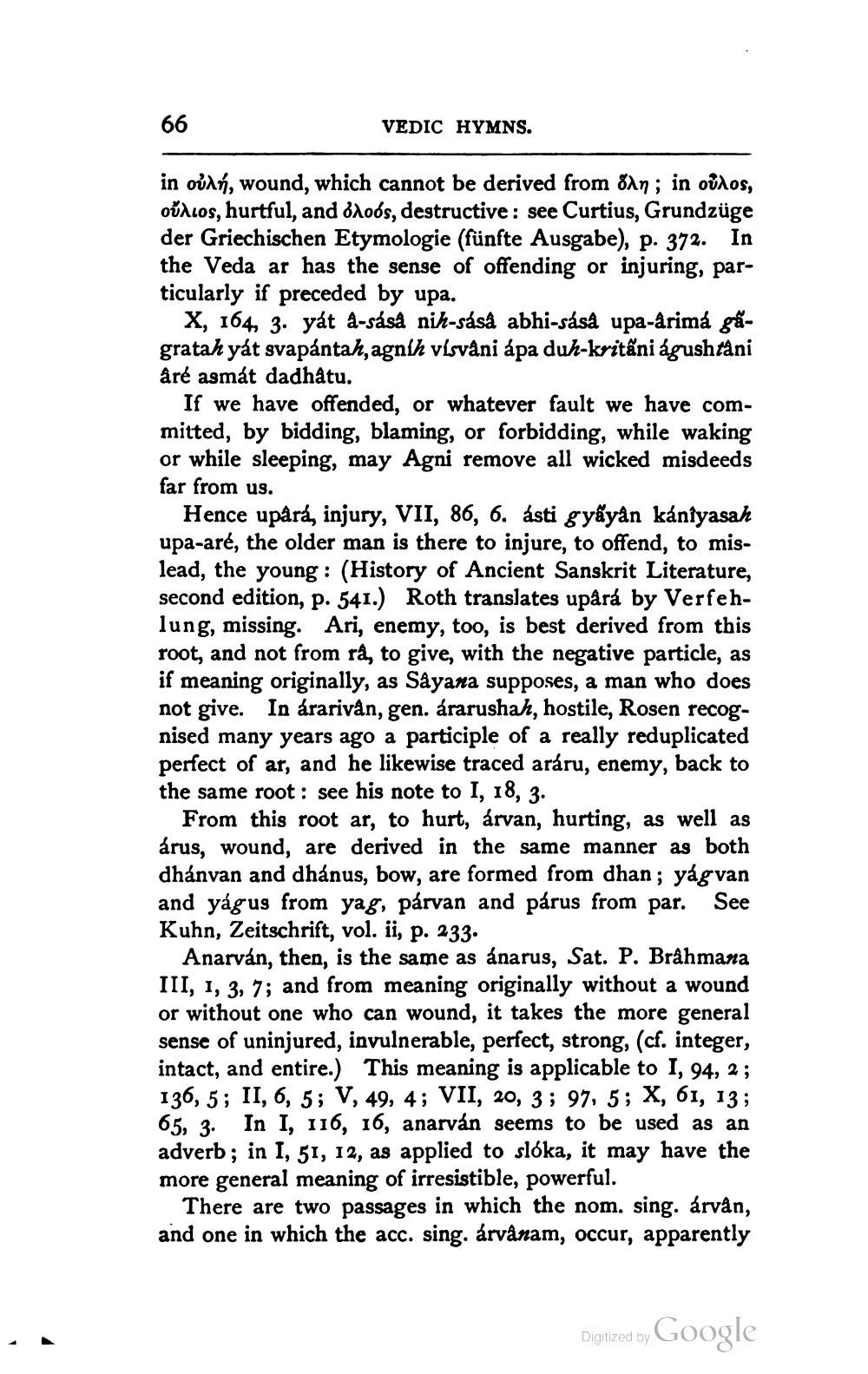________________
66
VEDIC HYMNS.
in ουλή, wound, which cannot be derived from όλη ; in oύλος, oớdlos, hurtful, and 8obs, destructive : see Curtius, Grundzüge der Griechischen Etymologie (fünfte Ausgabe), p. 372. In the Veda ar has the sense of offending or injuring, particularly if preceded by upa.
X, 164, 3. yát a-sáså nih-sáså abhi-sáså upa-arima gám gratah yát svapántah, agnih visváni ápa duh-kritâni águshtàni åré asmát dadhâtu.
If we have offended, or whatever fault we have committed, by bidding, blaming, or forbidding, while waking or while sleeping, may Agni remove all wicked misdeeds far from us.
Hence upårá, injury, VII, 86, 6. ásti gyáyân kániyasah upa-aré, the older man is there to injure, to offend, to mislead, the young : (History of Ancient Sanskrit Literature, second edition, p. 541.) Roth translates upårá by Verfehlung, missing. Ari, enemy, too, is best derived from this root, and not from rå, to give, with the negative particle, as if meaning originally, as Såyana supposes, a man who does not give. In árarivan, gen. árarushah, hostile, Rosen recognised many years ago a participle of a really reduplicated perfect of ar, and he likewise traced aráru, enemy, back to the same root : see his note to I, 18, 3.
From this root ar, to hurt, árvan, hurting, as well as árus, wound, are derived in the same manner as both dhánvan and dhánus, bow, are formed from dhan; yag van and yag us from yag, párvan and párus from par. See Kuhn, Zeitschrift, vol. ii, p. 233.
Anarván, then, is the same as ánarus, Sat. P. Brahmana III, 1, 3, 7; and from meaning originally without a wound or without one who can wound, it takes the more general sense of uninjured, invulnerable, perfect, strong, (cf. integer, intact, and entire.) This meaning is applicable to I, 94, 2; 136, 5; II, 6, 5; V, 49, 4; VII, 20, 3; 97, 5; X, 61, 13; 65, 3. In I, 116, 16, anarván seems to be used as an adverb; in I, 51, 12, as applied to slóka, it may have the more general meaning of irresistible, powerful.
There are two passages in which the nom. sing. árvån, and one in which the acc. sing. árvånam, occur, apparently
Digitized by
Digized by Google




